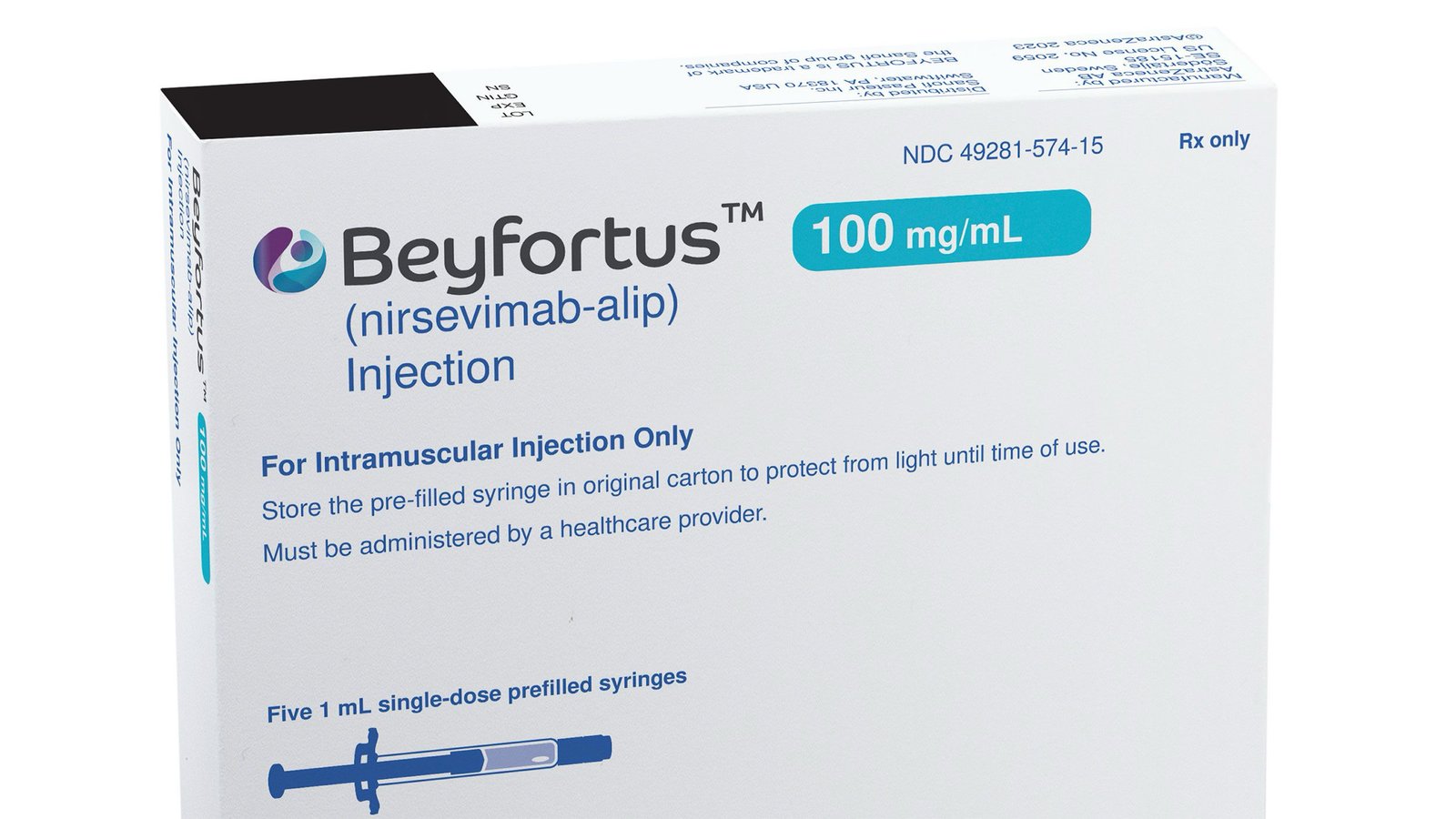Respiratory Syncytial Virus (RSV) is a leading cause of severe respiratory illness in infants, often resulting in hospitalization and long-term complications. Until recently, there have been limited preventive measures for RSV, but with the introduction of Beyfortus (nirsevimab), a groundbreaking monoclonal antibody, there is newfound hope in the fight against this virus. This article explores how Beyfortus works, its benefits, and the importance of this vaccine in protecting vulnerable infants from RSV.
Understanding RSV and Its Risks
RSV is a common respiratory virus that typically causes mild, cold-like symptoms in healthy adults but can lead to severe respiratory infections in infants and young children, especially those under one year of age. RSV is highly contagious and spreads through droplets when an infected person coughs or sneezes. It can also be transmitted by touching surfaces or objects contaminated with the virus.
For infants, particularly those who are premature, or have underlying heart or lung conditions, RSV can lead to serious complications such as bronchiolitis, pneumonia, and in severe cases, respiratory failure. According to the Centers for Disease Control and Prevention (CDC), RSV is the leading cause of hospitalization for infants in the U.S., with nearly 58,000 hospitalizations annually for children under five years old.
What is Beyfortus and How Does It Work?
Beyfortus (nirsevimab) is a monoclonal antibody specifically designed to protect infants from RSV. Unlike traditional vaccines, which trigger the immune system to produce antibodies, Beyfortus provides infants with passive immunity by directly introducing antibodies that target and neutralize the RSV virus. These antibodies bind to the RSV virus, preventing it from entering and infecting the cells in the respiratory tract.
This unique mechanism of action makes Beyfortus different from other preventive treatments and highly effective in providing immediate protection. The vaccine is given as a single intramuscular injection, typically before the onset of the RSV season, ensuring protection throughout the high-risk months.
Key Benefits of Beyfortus
1. Immediate Protection: Beyfortus works rapidly by introducing pre-formed antibodies into the infant’s system, offering immediate protection against RSV. This is particularly important for newborns and premature infants who are most vulnerable to severe RSV complications.
2. Extended Duration of Protection: A single dose of Beyfortus is designed to last for an entire RSV season, typically about five to six months. This extended protection ensures that infants are safeguarded during the peak transmission months without the need for multiple doses.
3. Reduced Hospitalizations: Clinical trials have demonstrated that Beyfortus significantly reduces RSV-related hospitalizations. In a study involving thousands of infants, Beyfortus was shown to reduce hospital admissions due to RSV by over 70%, making it a vital tool in alleviating the burden on healthcare systems and reducing parental stress.
4. Effective for High-Risk Infants: Beyfortus is particularly beneficial for infants at high risk of severe RSV illness, including premature infants, those with chronic lung disease or congenital heart conditions, and infants with weakened immune systems.
Beyfortus vs. Traditional RSV Preventive Measures
Before the introduction of Beyfortus, the only approved preventive measure for high-risk infants was palivizumab, another monoclonal antibody. However, palivizumab requires monthly injections during the RSV season, limiting its practicality and widespread use. Beyfortus, on the other hand, offers protection with a single injection, making it a more convenient and effective option for both parents and healthcare providers.
Moreover, Beyfortus is designed for broader use, extending beyond just high-risk groups to offer protection to all infants during their first RSV season. This broader coverage could lead to a significant reduction in RSV-related complications across a larger population.
The Future of RSV Prevention with Beyfortus
The development of Beyfortus marks a significant advancement in the field of RSV prevention. With its ability to provide long-lasting, season-long protection from a single dose, Beyfortus represents a crucial step forward in reducing the burden of RSV on infants and healthcare systems worldwide.
Looking forward, the widespread adoption of Beyfortus could dramatically reduce RSV-related hospitalizations, allowing healthcare resources to be redirected to other pressing medical needs. It also holds the potential to reduce parental anxiety about RSV, providing peace of mind during the vulnerable early months of an infant’s life.
Conclusion
Beyfortus is not just another vaccine; it is a revolutionary tool in the fight against RSV, offering immediate, long-lasting protection for infants when they need it most. As RSV continues to be a major cause of respiratory illness in infants, the introduction of Beyfortus offers a powerful solution to reduce severe infections, hospitalizations, and long-term complications.
By ensuring that infants are protected during the RSV season, Beyfortus is helping to create a healthier and safer environment for children to thrive in their early years.
Scientific Sources:
• World Health Organization (WHO)




